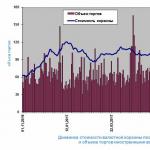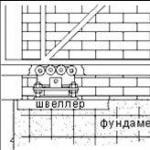The rules for granting annual paid leave for the first working year of an employee and subsequent working years differ from each other. Leave for the second and subsequent years of work is provided in accordance with the vacation schedule. And when does the right to leave arise for an employee who has been working for this employer for the first year?
The right to leave arises after 6 months of work
The right to use leave for the first year of work arises for the employee after six months of his continuous work from this employer (Article 122 of the Labor Code of the Russian Federation). Therefore, an employee can take a vacation in the seventh month of work, while the length of service with a particular employer must be continuous.
Is it possible to grant leave before the end of 6 months of work?
Upon mutual agreement between the employee and the employer, paid leave may be granted to the employee even before the expiration of six months of work.
Cases when the employer must grant leave before the end of 6 months of work
Before the expiration of six months of uninterrupted work, the employer must provide:
- women - before maternity leave or immediately after it (part 3 of article 122 of the Labor Code of the Russian Federation);
- employees under the age of eighteen (Part 3 of Article 122 of the Labor Code of the Russian Federation);
- employees who have adopted a child (children) under the age of three months (Part 3 of Article 122 of the Labor Code of the Russian Federation);
- husband - while his wife is on maternity leave (part 4 of article 123 of the Labor Code of the Russian Federation);
For example, a woman worked for an employer for two months and reported that she was pregnant and was about to go on maternity leave. In this case, she is entitled to take annual paid leave before going on maternity leave, despite the fact that she did not work for this employer for six months.
In order to exercise their right, the employee must write a statement.
Leave is provided in full
Labor legislation does not provide for the provision of incomplete leave, that is, in proportion to the hours worked. Thus, an employee, having worked for the employer for six months (and in some cases less than 6 months), has the right to use the vacation in full. In this case, leave is granted to him in advance.
At the same time, the employee has the right to ask for leave not in full, but only part of it. In accordance with Article 125 of the Labor Code of the Russian Federation, the division of vacation into parts is carried out by agreement between employees and employers, that is, the employer can refuse the employee this request and give the employee a vacation in full.
When dividing the vacation into parts, you must follow the rule - at least one of the parts of the vacation must be at least 14 calendar days.
Article 122 of the Labor Code of the Russian Federation. The procedure for granting annual paid holidays
New edition Art. 122 of the Labor Code of the Russian Federation
Paid leave must be granted to the employee annually.
The right to use the leave for the first year of work arises for the employee after six months of his continuous work with this employer. By agreement of the parties, an employee may be granted paid leave before the expiration of six months.
Before the expiration of six months of continuous work, paid leave at the request of the employee must be granted:
women - before maternity leave or immediately after it;
employees under the age of eighteen;
employees who have adopted a child (children) under the age of three months;
in other cases stipulated by federal laws.
Leave for the second and subsequent years of work may be granted at any time of the working year in accordance with the order of granting annual paid leaves established by the employer.
Commentary on Article 122 of the Labor Code of the Russian Federation
The right to use leave for the first year of work arises for the employee after 6 months of his continuous work in this organization. By agreement of the parties, an employee may be granted paid leave before the expiration of 6 months (Article 122 of the Labor Code of the Russian Federation).
Before the expiration of 6 months of continuous work, paid leave at the request of the employee must be granted (Article 122 of the Labor Code of the Russian Federation):
1) women - before maternity leave or immediately after it;
2) employees under the age of 18;
3) employees who have adopted a child under the age of three months;
4) in other cases provided for by federal laws.
Leave for employees is granted for a period of 28 calendar days. The vacation period does not include public holidays.
When determining the duration of the vacation, the working time regime of the organization (6-day or 5-day work week) is irrelevant.
This is the minimum duration guaranteed by federal law. Therefore, the annual basic leave cannot be less than 28 calendar days. However, it may exceed the specified number of days. This is done in two ways: by regulation and by contract. We are talking about extended basic leave provided to certain categories of employees in accordance with Part 2 of Article 115 of the Labor Code of the Russian Federation and other federal laws.
Read also: write-off act work books- sample
1) employees under the age of 18 (minimum vacation duration - 31 calendar days);
2) disabled people (minimum vacation time is 30 calendar days);
3) employees of children's institutions (the minimum duration of vacation is 42 calendar days);
4) workers educational institutions and teachers (the minimum duration of vacation is from 42 to 56 calendar days);
5) prosecutors and investigators of the prosecutor's office (the minimum duration of vacation is 30 calendar days), etc.
For people who work part-time, annual paid holidays are granted simultaneously with leave for their main job (Article 286 of the Labor Code of the Russian Federation). If the employee has not worked at a part-time job for 6 months, the leave is granted in advance.
As mentioned above, leave can be granted even before the entitlement to it, i.e. in advance. In this case, the vacation must be complete, i.e. established by law duration, and paid in full. The issue of the possibility of granting leave in advance can also be regulated in collective agreement or other local regulation of the organization.
Leave for the second and subsequent years of work can be granted at any time of the year in accordance with the vacation schedule.
The vacation schedule is drawn up no later than two weeks before the start of the calendar year. The schedule indicates the names of employees entitled to leave, their positions, structural subdivision in which they work, the number of days and the planned vacation period.
It is prohibited not to grant leave to an employee for two consecutive years.
Another annual leave must be submitted before the end of the current business year.
If the reasons preventing the employee from going on vacation occurred before it began, then a new period is determined by agreement with the employee.
Employees who have concluded an employment contract for a period of up to 2 months are provided with paid holidays or are paid compensation upon dismissal at the rate of two working days per month of work.
By agreement between the employee and the employer, annual paid leave may be divided into parts. At the same time, at least one of the parts of this vacation must be at least 14 calendar days (Article 125 of the Labor Code of the Russian Federation).
The annual paid leave, by agreement between the employee and the employer, is postponed to another period if the employee was not paid on time during this vacation or the employee was warned about the start time of the vacation less than two weeks before it began.
An employee who goes on vacation is paid average earnings (holiday pay).
Holidays are paid no later than three days before the start of the holiday.
Vacation pay is subject to income tax. individuals, unified social tax, contributions to compulsory pension insurance and insurance against accidents at work and occupational diseases in the usual manner.
The amount of vacation pay is calculated based on the average daily earnings of the employee. General order calculation of average earnings when paying for vacation is established in article 139 of the Labor Code of the Russian Federation.
Another commentary on Art. 122 of the Labor Code of the Russian Federation
1. Paid leave must be provided to the employee annually, i.e. for each working year. On the concept of a working year, see paragraph 6 of the commentary to Art. 114 of the Labor Code of the Russian Federation.
2. Establishing that the right to leave for the first year of work arises for the employee after six months of his continuous work with this employer, Art. 122 of the Labor Code of the Russian Federation at the same time contains a list of cases when the next leave at the request of the employee must be granted before the expiration of this period.
Other cases provided for by federal laws when an employer is obliged to grant leave before the expiration of a six-month period of continuous work include: granting a husband, at his request, annual leave while his wife is on maternity leave, regardless of the time of his continuous work with this employer (see Part 4 of article 123 of the Labor Code of the Russian Federation and commentary to it); providing a person working part-time with paid leave simultaneously with leave from the main job in the event that the employee has not worked at part-time work for six months (see part 1 of article 286 of the Labor Code of the Russian Federation and commentary thereto).
Prior to the expiration of the six-month period, leave may be granted to the employee even in the absence of these grounds, if an agreement is reached between the parties to the employment contract.
3. The duration of leave granted before the end of the working year must be equal to the full duration of the annual leave. Accordingly, the average earnings are paid for the entire period of leave granted to the employee.
If an employee is dismissed before the end of the working year in which he received annual paid leave, a deduction is made from the employee's salary to pay off his debt for unworked vacation days. Deductions for these days are not made if the employee leaves for the following reasons:
in connection with the refusal of the employee to transfer to another job, necessary for him in accordance with the medical report, or the absence of the employer of the relevant work;
in connection with the liquidation of the organization or the termination of activity by an individual entrepreneur;
in connection with a reduction in the number or staff of employees of an organization, an individual entrepreneur;
if the head of the organization, his deputy or Chief Accountant are dismissed in connection with the change of the owner of the property of the organization;
Read also: Can they be sent on vacation without the consent of the employee
when calling an employee military service or sending him to an alternative civilian service that replaces it;
upon reinstatement of an employee who previously performed this work, by decision state inspection labor or court;
upon recognition of an employee as completely incapable of labor activity in accordance with the medical opinion;
in the event of the death of an employee or employer - an individual, as well as when a court recognizes an employee or employer - an individual as dead or missing;
in the event of an emergency that prevents the continuation labor relations(see article 137 of the Labor Code of the Russian Federation and commentary to it).
- ‹ Article 121 of the Labor Code of the Russian Federation. Calculation of length of service giving the right to annual paid leave
- Up
- Article 123 of the Labor Code of the Russian Federation. Order of granting annual paid holidays ›
Right to vacation in the first working year arises for the employee only after six months of his continuous work with the employer. By agreement of the parties, paid leave may be granted to an employee before the expiration of six months. every employer's right.
There is also an obligation to provide paid leave before the end of six months of continuous work:
- women - before maternity leave or immediately after it;
- employees under the age of 18;
- employees who have adopted a child (children) under the age of three months and in other cases provided for by federal laws.
In all these cases, the basis for granting leave for the first working year is a written application from the employee.
Leave for the second year and subsequent years work can be provided at any time of the working year in accordance with the priority of granting annual paid holidays established in your organization. At the same time, in one calendar year, an employee can be granted two vacations for different working years. This means that annual paid leave is granted for each working year (12 months). And the six-month period is just the period when the employee becomes entitled to use his first vacation. This does not mean that he must be granted leave every 6 months of work. In the working year, he is entitled to only one vacation.
Therefore, if an employee received leave for the 1st year of work after 6 months, he must work with the employer for another 5 months (6 months + 1 month of leave + 5 months = 12 months), and only then is he entitled to leave for next (second) working year. In this case, the employer can provide such an employee with leave for the second year of work both at the very beginning of the second year and at the very end.
The first working year is calculated from the date of entry to work in this organization, and subsequent from the day following the day of the end of the previous working year.
The duration of continuous work gives the employee the right to receive leave. The Labor Code calls the duration of such work “the length of service giving the right to the annual basic paid leave” (Article 121 of the Labor Code). The length of service giving the right to annual basic paid leave is included.
- time of actual work;
- the time when the employee did not actually work, but in accordance with federal laws, he retained his place of work (position), including the time of annual paid leave;
- forced absence time illegal dismissal or suspension from a previous job;
- other periods of time provided for by the collective agreement, labor contract or internal (local) regulatory act of the organization.
The length of service giving the right to annual basic paid leave is not included.
1. the time the employee is absent from work without good reason, including as a result of his suspension from work in cases where:
- he appeared at work in a state of alcoholic, narcotic or toxic intoxication;
– did not undergo training and testing of knowledge and skills in the field of labor protection in the prescribed manner;
- did not pass the mandatory preliminary or periodic medical examination in accordance with the established procedure;
- has, in accordance with the medical report, contraindications for the performance of his work, stipulated by the employment contract;
— removed at the request of bodies and officials authorized by federal laws and other regulatory legal acts;
- in other cases provided for by federal laws and other regulatory legal acts.
2. Time of parental leave until the child reaches the legal age.
3. The time of leave granted at the request of the employee without pay for more than seven calendar days.
Seniority, which gives the employee the right to annual paid vacation. begins to be calculated from the date of the beginning of his work with a particular employer.
- Are you here:
- home
- Vacation
- Vacation in the first year. Leave for the second year. Leave for later years.
See also the Rules on Regular and Additional Leaves approved by the People's Commissariat of Labor of the USSR on April 30, 1930 N 169
At the written request of the employee, unused vacations may be granted to him with subsequent dismissal (with the exception of cases of dismissal for guilty actions). In this case, the day of dismissal is considered the last day of vacation.
For a certain number of days in a row, established by law and provided to the employee annually, while maintaining his place of work and, as a rule, average earnings.
In accordance with Part 5 of Art. 37 of the Constitution of the Russian Federation working on employment contract the right to paid annual leave is guaranteed. The right to leave arises for all employees, regardless of the place of work and the organizational and legal form of the organization.
Vacation entitlement have all categories of workers: temporary, seasonal, part-time workers, homeworkers, etc. It cannot be limited, canceled or lost during the period of work. Persons who have entered into civil law contracts (for example, a work contract, assignments) do not have the right to leave.
Annual paid vacation- this is a continuous rest for a certain number of days in a row, which is provided to all employees to restore working capacity while maintaining their place of work (position) and average earnings (Article 114 of the Labor Code of the Russian Federation).
For the right to leave, work experience is required. The procedure for calculating the length of service, which gives the right to an annual basic paid leave, is regulated by Art. 121 of the Labor Code of the Russian Federation. According to the amendments to the Labor Code of the Russian Federation, changes have been made to the list of periods that are included in the length of service, giving the right to the annual basic paid leave provided for in Art. 121 of the Labor Code of the Russian Federation. First of all, the list of periods includes the period of suspension from work of an employee who has not undergone a mandatory medical examination through no fault of his own. The definitions contained in paragraphs 3 and 5 of Part 1 of Art. 121 of the Labor Code of the Russian Federation, combined, and, thus, it is proposed to include in the length of service periods when the employee did not actually work, but behind him in accordance with labor legislation and other regulatory legal acts containing labor law norms, a collective agreement, agreements, local regulations , the employment contract retained the place of work (position), including the time of annual paid leave, non-working holidays, days off and other days of rest provided to the employee.
The maximum duration of unpaid leave has also been increased to 14 days, above which these periods are not included in the length of service, which gives the right to an annual basic paid leave. Thus, holidays at their own expense can be taken more freely. If now the eighth (and all subsequent) day of being on vacation at one's own expense is not counted in the length of service that gives the right to paid leave, then only the fifteenth day will be out of offset (Article 121 of the Labor Code of the Russian Federation).
The right to use leave for the first year of work arises for the employee after 6 months of his continuous work in this organization. By agreement of the parties, an employee may be granted paid leave before the expiration of 6 months (Article 122 of the Labor Code of the Russian Federation).
Before the expiration of 6 months of continuous work, paid leave at the request of the employee must be granted (Article 122 of the Labor Code of the Russian Federation):
- women - before maternity leave or immediately after it;
- employees under the age of 18;
- employees who have adopted a child under the age of three months;
- in other cases stipulated by federal laws.
Leave is granted to employees for a period of 28 calendar days. The vacation period does not include public holidays. When determining the duration of the vacation, the working time regime of the organization (six-day or five-day working week) does not matter. This is the minimum duration guaranteed by federal law. Therefore, the annual basic leave cannot be less than 28 calendar days. However, it can exceed the specified number of days, this is done in two ways: by regulation and by contract. We are talking about an extended basic leave provided to certain categories of workers in accordance with Part 2 of Art. 115 of the Labor Code of the Russian Federation and other federal laws.
- employees under 18 years of age (minimum vacation duration is 31 calendar days);
- disabled people (minimum vacation duration - 30 calendar days);
- employees of children's institutions (the minimum duration of vacation is 42 calendar days);
- employees of educational institutions and teachers (the minimum duration of vacation is from 42 to 56 calendar days);
- prosecutors and investigators of the prosecutor's office (the minimum duration of vacation is 30 calendar days), etc.
For people who work part-time, annual paid holidays are provided simultaneously with leave for their main job (Article 286 of the Labor Code of the Russian Federation). If the employee has not worked at a part-time job for 6 months, the leave is granted in advance.
The rules on holidays (approved by the NCT of the USSR on April 30, 1930), which are currently in force in the part that does not contradict the Labor Code of the Russian Federation, provide that leave can be granted even before the right to it, i.e., in advance. At the same time, the vacation must be complete, that is, the duration established by law, and also fully paid. In addition, the issue of the possibility of granting leave in advance can also be regulated in a collective agreement or other local regulatory act of the organization.
Leave for the second and subsequent years of work can be granted at any time of the year in accordance with the vacation schedule. The vacation schedule is drawn up no later than two weeks before the start of the calendar year. The schedule indicates the names of employees entitled to leave, their positions, the structural unit in which they work, the number of days and the planned vacation period.
It is prohibited not to grant leave to an employee for two years in a row.
The next annual leave must be granted before the end of the current working year. If the reasons preventing the employee from going on vacation occurred before it began, then a new period is determined by agreement with the employee.
Employees who have concluded an employment contract for a period of up to two months are provided with paid holidays or are paid compensation upon dismissal at the rate of two working days per month of work.
By agreement between the employee and the employer, annual paid leave may be divided into parts. At the same time, at least one of the parts of this vacation must be at least 14 calendar days (Article 125 of the Labor Code of the Russian Federation).
Recall of an employee from vacation is allowed only with his consent. The part of the vacation not used in connection with this must be provided at the choice of the employee at a time convenient for him during the current working year or added to the vacation for the next working year.
Recall from vacation is not allowed:
- workers under 18;
- pregnant women;
- workers employed in work with harmful or hazardous conditions labor.
Annual paid leave must be extended in cases where:
- the employee fell ill while on vacation;
- the employee performed state duties during the vacation (if the law provides for exemption from work for this);
- in other cases provided for by law or local regulations of the organization.
The annual paid leave, by agreement between the employee and the employer, is postponed to another period if the employee was not paid on time during this vacation or the employee was warned about the start time of the vacation less than two weeks before it began.
In exceptional cases, when the provision of leave to an employee in the current working year may adversely affect the normal course of the organization's work, it is allowed, with the consent of the employee, to transfer the leave to the next working year. At the same time, leave must be used no later than 12 months after the end of the working year for which it is granted.
An employee leaving for is paid average earnings (holiday pay). Holidays are paid no later than three days before the start of the holiday. The amount of vacation pay is subject to personal income tax, unified social tax, mandatory pension insurance contributions and insurance against accidents at work and occupational diseases in the usual manner.
Vacation pay is calculated based on the employee's average daily earnings over the past 12 months. The general procedure for calculating average earnings when paying for vacation is established in Art. 139 of the Labor Code of the Russian Federation.
The procedure for granting holidays
Leave is granted at the personal request of the employee in accordance with the vacation schedule, which is drawn up by agreement with the trade union. The vacation schedule is drawn up taking into account the duration of the employee's vacation and without disrupting the normal course of the enterprise. Vacations can be moved if there is a production need for this, if the employee did not go on vacation in a timely manner without good reason, the employer has the right, at his discretion, to move it to any time in the current year. Vacation transfer to next year is allowed only if there are production reasons and with the consent of the employee, and in the current year he must be given at least 6 days from vacation. Recall from vacation can only be with the consent of the employee. Vacation payment must be made no later than three days before it starts (Article 136 of the Labor Code of the Russian Federation). Leave must be granted at any time at the request of the employee:
- minors;
- women for pregnancy and childbirth before or immediately after it;
- women immediately after parental leave;
- other categories established by law.
It is prohibited not to grant leave for two consecutive years, with the exception of persons working in the regions of the Far North. Replacing vacation with monetary compensation is not allowed, except in cases of dismissal or in part exceeding 28 days for each year for which vacation is granted.
According to the Constitution of the Russian Federation - art. 37, paragraph 5 - every citizen has the right to leave. Art. 114 of the Labor Code of the Russian Federation defines such a concept as annual paid rest as follows: this is the time provided for rest for an employee while maintaining his permanent place work, previous position, as well as earnings.
Art. 122 of the Labor Code of the Russian Federation guarantees the right to every worker regardless of position. It comes after six months from the date of commencement of work in the organization. Today by law the employee acquires the right to paid rest with each day worked, and not for a calendar year.
The annual leave is 28 days. It is calculated in accordance with the six-day period, while public holidays that fall during this time are not included in the number of days of rest and, accordingly, are not paid.
In law the main paid leave to the employee is provided in accordance with work experience , which includes the time of work in fact, as well as the time when the employee could not actually work, but he was kept. Such cases include: public holidays and days off, periods of business trips, disability, advanced training, time for medical examinations, training sessions and some others.
Starting from the moment when the employee has worked in the organization for six months, he has the next paid vacation at any time in accordance with the schedule for their provision. For the first year of work at the enterprise, leave may be provided in advance upon the preliminary application of the employee. The category of primary applicants for it includes women before the decree, employees under the age of 18, employees with adopted children in the family, part-time workers, the husband during the wife's decree.
In addition to the main rest Employees are legally entitled to additional leave. According to Art. 116 of the Labor Code of the Russian Federation, it can be provided to the following categories of employees: those employed in hazardous conditions, those who have an irregular working day, and other categories in accordance with the law and enterprises.
Some employees may use the right to leave longer than average. This applies to employees under the age of 18 (31 days), employees of the pedagogical field (from 42 to 56 days), (30 days), disabled people (at least 30 days).
The maximum duration of compulsory paid rest is not established by law and is determined by employers independently.
According to Art. 123 Labor Code of the Russian Federation the employer can recall the employee from vacation, but with the consent of the latter. In this case, the refusal of the employee to start work cannot be regarded as a violation work discipline.
If the employee agreed to go to work, interrupting the vacation, the unused part of the vacation days must be provided to him at any convenient time during the current year. It is possible that the unused part of the vacation is added to the vacation in the next working year.
According to the law (Article 125 of the Labor Code of the Russian Federation), the right to leave can be exercised in several stages, dividing the leave into parts. In such a case, at least one part must be at least 14 calendar days.
Any leave is granted after signing an order or order in the form No. T-6, T-6a, in accordance with the annual (form No. T-7). From the moment the schedule is signed, it is mandatory for employees and employers.
The right to leave can also be exercised upon dismissal from the enterprise (Article 127 of the Labor Code of the Russian Federation). If the employer does not agree to give the employee leave before dismissal, he is obliged to pay him compensation in cash.
Current legislation guarantees all workers an annual long vacation. In addition to the fact that it is paid by the employer, when it is used, jobs, salaries and other working conditions are saved for employees. The procedure for granting, processing, paying for vacations is regulated by the Labor Code of the Russian Federation.
For new employees, there are some differences and restrictions in the provision of basic leave. Moreover, they concern both ordinary workers and certain categories personnel.
The obligation to comply with the procedure for granting vacations rests with employers. Therefore, it is important to know and strictly adhere to it. Violations are subject to administrative liability and other penalties.
Norms of the Labor Code
The rights of citizens to rest on new job protected by labor law. Article 122 establishes that the first paid vacation period is due to the employee after 6 months of continuous cooperation with the employer. He can apply for leave in the 7th working month. In accordance with Art. 115 total duration of rest - 28 days.
With the approval of the employer, the first leave may be granted even before six months of work.
- citizens under the age of 18;
- employees who are expecting a baby;
- employees who have adopted children under the age of 3 months;
- other personnel who have privileges granted by federal laws (veterans, spouses of military personnel, part-time workers, etc.).
Attention! Leave is given to the designated categories of employees on the basis of personal applications indicating and official confirmation of the right to early rest. The employer does not have the right to refuse even in case of an urgent production need for them.
Some employers are inclined to believe that after six months of work, vacation should be taken partially. However, this position is misleading.
After working with a new employer for 6 months, the specialist receives the full right to all types of recreation provided for:
- main annual;
- additional;
- elongated, etc.
Russian law allows you to give holidays in advance in the first working year. When an employee is dismissed before the hours worked, for which rest has already been granted, it is allowed to withhold paid vacation pay (Article 137 of the Labor Code of the Russian Federation). The calculation is made according to the rule of article 138 of the Labor Code, which establishes a maximum deduction of earnings in the amount of 20%.
It's important to know! An exceptional case of calculating the duration of the first vacation period is additional vacation, which is provided when working with harmful or dangerous conditions. It must be drawn up in proportion to the time actually worked (Article 121 of the Labor Code of the Russian Federation).
To determine the order of vacation periods, employers maintain special schedules. The procedure for drawing up the next vacation schedule for the coming year is established by Art. 123 of the Labor Code of the Russian Federation. The document is drawn up, agreed and approved two weeks before the end of the current calendar year.
What to do with new employees if the vacation schedule has already been drawn up? There are no restrictions for either the employee or the employer in such a situation. The vacation schedule is not adjusted retroactively. Upon a written application of a new employee, he is granted the first leave at the time prescribed by law, unless otherwise agreed by the parties to the employment relationship.
Attention! The Labor Code does not prohibit the adjustment of the main vacation schedule during the year. For this, the personnel department prepares an additional schedule, agreed with the employees, the trade union of the organization and approved by the head in the usual manner.
Registration of the vacation period in the first year of employment does not differ from other years.
The order is as follows:
- Writing an application by an employee.
- Approval of the application by the head and issuance of the order (form T-6).
- Calculation of vacation pay with entering information into and.
Vacation pay is calculated based on the average earnings for the previous year. In the case of a new employee who has not completed 12 months, the calculation is based on wage for the time actually worked from the beginning of his work to the month in which the application was submitted. In the same way, the average earnings are calculated and the billing period is determined.

When is the first vacation after getting a job
At a new place of work, leave is due from the first year (part 1 of article 122 of the Labor Code of the Russian Federation). Each subordinate, regardless of the duration of cooperation with the employer, has the right to receive vacation days annually. Consequently, employees have all legal grounds for demanding leave in the new organization in the first year of their work.
All employees working under employment contracts have the right to leave. The conditions for the rest of workers working on, are determined by the parties independently. Such agreements include work contracts, paid services and some others.
A vacation is an uninterrupted period of rest for an employee lasting several days with the vacationer retaining a workplace at the enterprise, salary and other working conditions.
By general rule the first leave after getting a job is due after 6 months of employment with a new employer (part 2 of article 122 of the Labor Code of the Russian Federation). The legislation does not speak about the specific moment of its provision. Therefore, you can claim the right to leave immediately after six months of work or later, at a convenient time before the end of the calendar year.
If the annual paid leave was not used, the employer must compensate him financially. Despite the fact that the procedure for providing rest to employees is regulated by law, it will not be superfluous to reflect it in labor agreement. All employers are required to give employees leave after six months of work. They cannot refuse it.
Is it possible to leave early?
The Labor Code determines that the employer has the right to give leave earlier, due date(part 2 of article 122). He makes this decision on his own. legal grounds for the exit of an ordinary employee who has not worked for six months, no. The exception is the categories of personnel named in Part 3 of Art. 122.
A new employee is entitled to early leave, for example, if he:
- has not reached the age of majority;
- adopted baby(not older than 3 months);
- is a pregnant woman (before the leave associated with this event or immediately after it).
There are other exceptional cases defined by federal law.
Rest order
The frequency of vacation periods at the enterprise is established by the vacation schedule. The document is drawn up annually 2 weeks before the new year (Article 123 of the Labor Code of the Russian Federation). For employees who have not worked for half a year, vacations are planned for the next year or changes are made to the current schedule.
As a general rule, every employee has the full right to receive basic leave every year. He can use it after six months of work. In this regard, the vacation period, which is due by law, can be divided into parts, one of which should not be less than 14 days.

Duration
The duration of the first vacation at a new job depends on the moment when the employee wished to take it. In this case, the Labor Code grants the right to paid rest in in full subject to 6 months of service. Moreover, this period of work must be continuous.
It is important to understand that it is not necessary to go on vacation after six months. Vacationing a new employee for an annual vacation is an employer's right, not an obligation. He may refuse to grant leave if there is a production need for a specialist.
The employee must exercise his right to basic paid leave within a year. It is the responsibility of the employer to control this. By law, if the reporting period ends, he must send an employee on vacation who has not yet gone on vacation. Employers are responsible for unused holidays.
The employee, in turn, may refuse to leave and ask for his replacement with monetary compensation. This question resolved by agreement of the parties to the employment relationship. The subordinate has the opportunity to use this right only once every two years. It is forbidden to refuse the main vacation for two, three years or more in a row.
As a general rule, the total duration of the annual vacation period is 28 calendar days.
- working under dangerous or difficult conditions;
- employees of kindergartens, institutions of basic, secondary special and higher education;
- underage workers;
- workers on irregular days.
Other cases of granting additional days are also possible, provided for by federal laws or local acts.
The employer gives his consent to the employee's leaving on vacation if he has a replacement for another specialist or he can temporarily do without him. If a specialist has worked for 6 months, he can receive vacation days in advance, i.e. more than he actually earned. Previously, such a possibility was out of the question.
Naturally, employers try to avoid such privileges, since the risk that an employee will not return after receiving payment in advance is very high.
To protect the employer, the law provides for the possibility of collecting debts from a subordinate for used, paid, but not worked vacation days. But limiting the amount of the penalty to 20% of earnings does not guarantee full compensation for the damage suffered.
Procedure for registration and payment in 2019
The official local document of the organization that regulates the procedure for employees to go on vacation is the vacation schedule. It promotes compliance effective work enterprises and the prevention of missing legal rest. After all, the duty to control the use of vacation days by staff is assigned to employers.
The schedule is drawn up annually two weeks before the end of the year (Article 123 of the Labor Code of the Russian Federation). Therefore, in 2019, the last day of its signing is December 17. At an enterprise that has a trade union body, it is obligatory to take into account its opinion when drawing up a document. If it is necessary to postpone vacation days, the changes must be coordinated with the employees concerned.
Attention! The employer is obliged to give each employee vacation during summer time at least once every four years.
If at the time of drawing up the vacation schedule, the organization has employees who have not worked for six months, it is necessary to plan the time when they can be provided with mandatory rest after employment for the next calendar year.
If the employee has the right to use the first vacation before six months of work and has expressed a desire to use it, it is necessary to include his vacation in the general schedule.
Since the first vacation after getting a job can be taken in full, the calculation is based on the number of days needed by the vacationer. Payment is made after notification of the employee and before the first day of vacation. The enterprise issues an order containing information on the number of vacation days provided, their dates. The vacationer must familiarize himself with it against signature.
If it is not possible to familiarize the employee with the order personally, a special notification is sent to him.
The amount of vacation pay is calculated by the accounting department based on the average earnings for Last year work. The previous three business months may be used in the calculation. Earnings include not only the basic salary, but also all bonus payments, remuneration, allowances.
All earnings of the vacationer are divided into required amount months (12 or 3) and divided by 29.6 - the average monthly number of calendar days established by law. total amount is determined by multiplying the number of vacation days provided by the average daily earnings.
Similarly, monetary compensation for unused annual rest is calculated in the event of an employee's refusal or dismissal. An application is required to receive compensation.
The Labor Code obliges employers to transfer vacation payments three days before the actual start of the vacation period (Article 136). If the last day falls on a weekend, the transfer must be made in advance. It is prohibited to transfer the payment to the next business day. For violation of these rules, the employer bears administrative responsibility.
In case of violation by the employer of the terms for paying vacation pay, the subordinate has the right to refuse the vacation and take it any other time at his discretion.
In addition to paying vacation pay, the company must make pension and tax deductions on them. For their transfer, the accounting department draws up payment orders. By law, all amounts must be transferred to government bodies on the day of vacation pay.
While working at the enterprise, each employee has the right to rest. This applies not only to weekends, but also to a longer absence from the workplace. The right is stipulated in the law of the state and in the collective agreement. It also specifies the number of days provided for rest to the employee. Time off is given not only for outdoor recreation or trips to distant countries, there are other days free from work, provided to citizens as needed.
According to the Labor Code, a regular vacation is granted a certain number of days. The employee is kept workplace, wage. According to the labor law, a citizen can rest for 28 calendar days.
The constitution also guards the protection of the interests of workers, and article 37 in part 5 states that a citizen working under an employment contract has the right to take paid rest every year. This right arises regardless of the form of ownership and the size of the enterprise. The provision of annual paid leave in accordance with the Labor Code of the Russian Federation is possible not only for employees at their main place of work. This privilege is used by hired employees who work part-time or are temporarily at the workplace. Seasonal workers also go on vacation. The employer does not have the right to set limits or cancel the annual rest of his employees.
An employee can go on another vacation only according to the vacation schedule. The document contains the order of exit of each working citizen for the weekend.
Vacation is the absence from the workplace for a certain number of days. Interruption of rest is unacceptable, unless it is caused by extreme necessity. The opportunity to rest is provided to the worker, regardless of nationality, position, skill level. This opportunity is given to a worker who works for the benefit of the company for more than six months.
But there are exceptions in the law when they go on vacation before the experience in this company has reached 6 months.
Below is a list of categories of employees specified in the exception:
- registration by a woman of a disability certificate with a diagnosis of pregnancy. There is the concept of "maternity leave";
- minor worker;
- in the family of the employee is brought up adopted child under the age of three;
- provision of time off for other needs not related to the main work. This includes the delivery of the session, the funeral, etc.
According to the Labor Code of the Russian Federation, annual paid leave is granted for 28 calendar days. But there are professions whose rest exceeds established norms. This condition is written in legislative acts(Article 115 part 2 of the Labor Code) and in an agreement between the employer and the employee.
- minor employees can rest for 31 days;
- citizens classified as disabled rest 30 cal. days;
- educators and others working in children's institutions - absent from the workplace for 42 days;
- teachers, teachers and other employees of educational institutions have a rest from 42 to 56 days;
- employees of the prosecutor's office go to rest for thirty cal. days.
For part-time workers, long days off are also assumed, but in accordance with Article 286, prescribed in the Labor Code, they are given simultaneously at the main workplace and at the second job. If it turns out that the combined work is performed for less than six months, then the vacation is given as an advance payment. This does not reduce the number of days off. The moment of provision of advance rest can be specified in the employment contract or collective agreement.
The calculation of the number of days the employee is absent from the workplace is done taking into account public holidays. This means that days off granted in connection with the holidays automatically extend the duration of the vacation.
There are also a number of other circumstances, according to which the annual leave under the Labor Code of the Russian Federation is extended:
- the number of days spent on sick leave during the main rest period, upon presentation of a supporting document (sick leave certificate);
- during the rest period, the employee had to perform state duties. Vacation is extended if this type of work provides for exemption from work at the main place;
- other cases prescribed in legislative acts or in normative documents organizations.
Article 122 of the Labor Code does not prohibit dividing the next vacation into several stages, if the working conditions require it or at the request of the employee himself. In this case, the condition must be observed that one of the stages lasts at least 2 weeks.
Vacation can be provided not only by an enterprise for its employees, but also by an educational institution for students. This type recreation is called academic. The norms are spelled out in article 34 of the educational law in the twelfth paragraph. The duration of the exemption from employment may not exceed two years.
In what cases leave is granted educational institution:
- for health. The onset of circumstances that do not allow further training. For confirmation, they provide the conclusion of the medical board, other certificates;
- for family reasons. It can be pregnancy if you need to care for a sick child or relative. Provide documents confirming the reason;
- conscription into the army. An agenda is attached to the application, which indicates the personal data of the conscript and the length of service;
- other cases. This may be the funeral of a close relative, an overseas internship.
A citizen, during the academic period, continues to be a student, all rights and privileges are retained.
In addition to the main type of recreation, in labor law provides for the provision of additional paid leave to certain categories of employees every year in accordance with the rules of the Labor Code of the Russian Federation.
 The norms are spelled out in the labor law:
The norms are spelled out in the labor law:
- Article number 117, prescribed in the Labor Code, indicates employees whose performance of official duties takes place in the environment dangerous for life and endangering health. The conditions are determined by a special commission involved in the certification of jobs. In this case, you can add 7 days calculated according to the calendar to the main vacation, or take them off at another time. The right to receive time off is prescribed at the legislative level, in the labor contract concluded between the person performing the work and the enterprise.
- Article number 118 of the labor law states that additional days off are given to employees who perform work under special conditions prescribed in Government Decree number 1588. However, as of 2019, the document does not contain a clear list of specialties defined as special conditions .The employer can independently compile a list of positions or employees (in the document you can register both positions and employees at the same time) for which additional leave is possible. Vacation pay is paid by the company.
- Article 119 of the labor law notes that additional days off must be granted to those who work and the working day is irregular. The conditions are prescribed in the collective agreement, and are also indicated in the internal regulations of the enterprise. Additional days off are provided in the amount three days calculated according to the calendar. The right is enshrined at the legislative level.
- Article 321 of the labor law and the Federal Law of 1993, number 4520/1, states that citizens working in the Far North must require 24 cal. day, in addition to the main type of rest. Performance official duties produced in a territory equated to northern conditions, a citizen receives 16 days off. At enterprises located in areas as close as possible to northern regions, rest can increase by 8 calendar days. It is worth noting that even part-time workers whose duties involve labor in the environment of the Far North, according to Article 302 of the Labor Code, may receive additional days for rest.
- Other categories of workers specified in other regulations. These are athletes, coaches, employees of the Ministry of Internal Affairs, liquidators at the Chernobyl nuclear power plant, mothers recognized as having large families.
The employer is not entitled to limit the number of days provided on additional leave, except for those established by law. On the part of the administration of the enterprise, the period of going on vacation is regulated, the ability to break extra rest into several stages. Decisions are agreed with the employee.
Additional leave on payment is equated to the main one and the employee receives vacation cash payments.
 Also, the Labor Code does not prohibit taking a vacation without pay.
Also, the Labor Code does not prohibit taking a vacation without pay.
The law prescribes certain categories of employees entitled to free rest:
- combatants in the Great Patriotic War. They are expected to have 55 days off from work;
- citizens of retirement age working at the enterprise. This category can count on 14 calendar days;
- relatives of servicemen who died in the line of duty. These include parents, wives, husbands. The category rests for two weeks at its own expense;
- on free leave must be released: in connection with a wedding, funeral or the birth of a child. These events are released for 5 days;
- a single mother is entitled to two weeks of free rest.
Any employee of the organization can go on the weekend for free by writing an application and describing in it good reason. For its part, the employer decides whether to release the worker or not, given the reason, how good it is.
The right of a worker to annual rest is protected by Article 122 of the Labor Code of the Russian Federation. Therefore, any violation of this right is punishable by administrative responsibility and fines. This provision is set out in the Code of administrative offenses(CoAP).
The Labor Code states that a citizen is obliged to go on paid leave every year, he cannot be denied this. For employees under the age of 18, the law expressly prohibits the complete lack of vacation.
 Penalties are provided for such actions:
Penalties are provided for such actions:
- intruder entity. If the fact of non-compliance with the law is noted for the first time, then the monetary penalty will be from 30,000 to 50,000 rubles, subsequent ones threaten with penalties up to 70,000 rubles. Fines are imposed in accordance with Article 5.27 of the Code of Administrative Offenses in the first part;
- for violators individual entrepreneurs and officials for the first non-compliance from 1000 rubles to 5000. If the second and subsequent, then fined from 10 thousand to 20 thousand rubles. For officials, a second violation threatens with disqualification for a period of 1-3 years. It is regulated by Article 5.27 of the Code of Administrative Offenses, part two.
If the employee did not take legal leave and the company is to blame for this, then these days remain assigned to the worker and are transferred to the company's debt obligations. They can be moved to the next year and inserted into a fresh vacation schedule or by agreement with the employer.
The opposite effect is often observed, the employee himself consciously refuses the annual long day off. He is familiar with the plan for taking rest of other employees.
The vacation plan drawn up at the enterprise is mandatory for both the employer and the citizen who is an employee in this company. Failure on the part of the worker is a breach of discipline, regulated in section 192 of the labor law. The employer has the right to reprimand the employee, and other types of punishments are at the discretion of the director.
Vacation interruption, without serious reasons, is not allowed, but if the employee arbitrarily returned to the workplace during the annual rest period, then this moment should be recorded. In the future, the employee does not have the right to demand money for unspent leave on his initiative.
It is forbidden to issue an annual vacation on a day off, even if there is a statement from the employee. This action is a direct violation of the rights of the worker, as it reduces the number of vacation days available and increases working hours. The norm is fixed in article 21 of the labor law, in paragraphs 6 and 12.
The Labor Code expressly prohibits replacing paid leave with monetary compensation. The only case when non-vacation days off are paid in money is upon dismissal, as one of the types compensation payments. Regulation of the norm occurs in article 127 of the Labor Code of the Russian Federation.


















